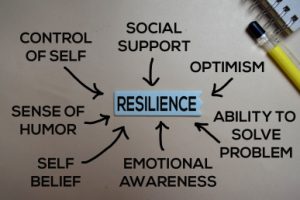As the year 2020 comes to an end and a new year begins, it is always helpful to remember what approaches are helpful and uplifting when dealing with a stressful and difficult court case involving children, such as a parental alienation case or a child custody modification case. One of my clients this week reached out to both myself and an excellent clinician that is supporting the case with a concern that her/his children are just so damaged, and so unruly in his time spent with them. Seeing the kids acting out, and suffering, causes my client to suffer, too. Very positive steps are being accomplished in the case, and the clinical support has been excellent, but it’s still tough on parents that have to experience their kids in distress in the midst of parental conflict and the damage of an alienation campaign. The following excerpt is excellent, and focuses on the need for parents to maintain a positive psychology in the midst of these court cases.

Sharon Stines, PsyD: No matter what is going on in your personal life, particularly with regards to the challenges you are facing with your co-parent and children, it can help to avoid expending all of your energy focusing on what doesn’t work. Maintaining a positive attitude can be difficult, but try to practice gratitude by waking up each morning and welcoming the day. Notice the good things you do have and keep in mind the things in life you are thankful for, instead of focusing on the negative.
Another helpful practice is demonstrating resilience and confidence each day to your children. You do this by living these values, by genuinely showing your children your strength and love for them. Children may naturally gravitate toward strength. If you can show yourself and your children unwavering and positive strength through the process of living well, you may be able to minimize any damage caused by the other parent. This may, in fact, be one of the most important things you do for your children in the long run.
I hope some of these strategies are helpful as you attempt to manage the challenges that may come your way when co-parenting while experiencing parental alienation. Narcissistic abuse is often so personalized and insidious that it can be difficult for people who have not experienced it to fully understand how daunting and far-reaching it can be. Regardless of how much support you have, you may feel alone, as if other people in your life have no clue what you are up against.
But remember that you are not alone. Developing trust and faith in yourself, and prioritizing your well-being, can help you remain strong. (Attorney support: Identify the court advocates in your community that understand and can manage Parental Alienation cases.) If you aren’t already working with a compassionate therapist or counselor, finding one who has training or experience appropriate for your situation can also be of great benefit.
References:
- Childress, C. A. (2015). An attachment-based model of parental alienation: Foundations. Claremont, CA: Oaksong Press.
- Darnell, D. (2008). Symptoms of parental alienation. PsyCare. Retrieved from https://www.parentalalienation.com/articles/symptoms-parental-alienation.html
- Simon, G. (2011). Character disturbance. Marion, MI: Parkhurst Brothers Publishers Inc.
 Illinois Divorce Lawyer Blog
Illinois Divorce Lawyer Blog

